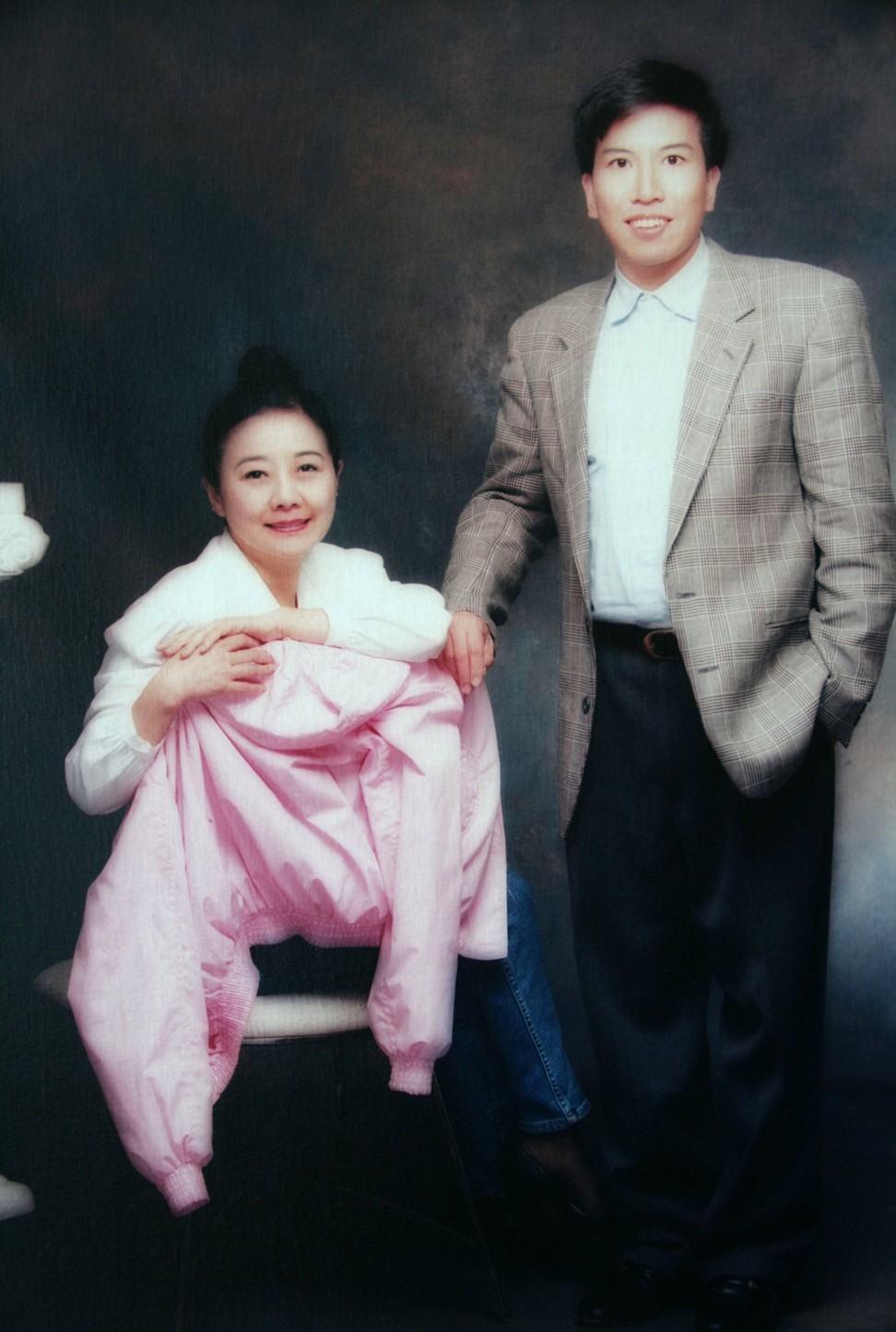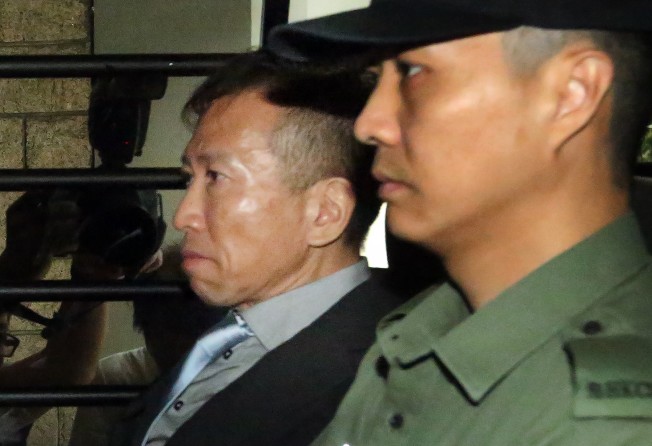
Religious studies give jailed former feng shui master Peter Chan different focus – but he is still trying to clear name over forged will of late billionaire Nina Wang
- Chan, 59, says he has completed two distance learning courses from Baptist Theological Seminary since being jailed in 2013 and is now on his third one
- He has filed a civil lawsuit in mainland China and is seeking a public apology from various parties involved in the legal fight over HK$83 billion estate

For the past five years behind bars, former feng shui master Peter Chan Chun-chuen, who was convicted of forging a will to inherit the multibillion-dollar estate of late tycoon Nina Wang Kung Yu-sum, has followed a simple daily routine – pray, jog for an hour, and eat healthy.
In a written reply to the Post, via a source in contact with him, Chan, 59, said he had already completed two distance learning courses from Baptist Theological Seminary since 2013, on the Old and New Testament respectively, and had just started another one on biblical studies.
“I hope in the future I can help other discharged prisoners,” Chan wrote. “Maybe start some missionary work, if this pleases almighty God.”
While religion may have given Chan a new direction in life, he is still trying to clear his name through a roundabout route in mainland China after exhausting all legal channels in Hong Kong.
Chan, who was named Tony before he converted to Christianity soon after being jailed, first made the headlines days after Wang’s death in April 2007.
He revealed he was the billionaire’s lover, and later asked the court to appoint him as the sole heir to her HK$83 billion (US$10.6 billion) estate, claiming he had a will made by Wang, boss of the Chinachem Group, in October 2006.
Chinachem Charitable Foundation, led by Wang’s brother, Kung Yan-sum, argued Chan’s will was a forgery. A key witness, lawyer Winfield Wong Wing-cheung, said he witnessed only a “partial will” signed by Wang in 2006, which amounted to a sum of around HK$10 million.
After a lengthy legal battle, which included testimony from handwriting experts, the court in 2010 found the 2006 will was forged and the foundation was awarded the estate. In 2011, Chan lost his final appeal in Hong Kong’s top court over his claim to the estate.
The verdict led to the prosecution of Chan in 2013 for forging the 2006 will. Later that year, a High Court jury convicted Chan of one count of forgery and another of using a false document, and jailed him for 12 years. In 2016, the appeal court refused to grant him permission to take his case to the top court over the conviction.
In that appeal hearing, Chan cited a civil lawsuit in Hong Kong filed by Chinachem subsidiary Right Margin against Kung and he alleged that key witnesses in his trial were paid to testify. But the judge said while this was an alleged great matter of injustice, it stopped short of being a legal argument.
That civil suit Chan referred to involved a 122 million yuan (US$18.2 million) commercial dispute in Xiamen on the mainland. Kung also faced related suits in which he was accused of using the Xiamen project to fund the fight for the estate. Chan is now trying to use these cases as a launch pad to continue his own legal fight.
Insisting the 2006 will was genuine, Chan filed a civil lawsuit in Xiamen last May and named eight companies connected to the fight over Wang’s estate in Hong Kong and Kung’s cases.
They include Chinachem Group, the foundation and Wong’s law firm. The remaining five are companies involved in the civil disputes.
According to a Xiamen court document, Chan is suing Chinachem and others for “infringing the applicant’s civil rights, including reputation, personality and dignity”.
I’m very confident about the case, because I have never forged any will!
He claimed he faced a miscarriage of justice in the city, and demanded a public apology from them to be published on the mainland, and in Hong Kong, Macau and the international media.
An employee from the Fujian provincial judiciary confirmed Chan’s application was registered on June 21, 2018. The plaintiff’s Chinese name was the same as Chan’s.
“The case is not closed yet but I can’t tell if there has been any hearing due to limited authorisation,” the employee said on Thursday.
In his written reply to the Post, Chan said: “I’m very confident about the case, because I have never forged any will! I’ve often believed what’s real cannot be falsified, and vice versa – that’s the simple but eternal truth.”
Asked why he did not demand monetary compensation, Chan said he could not afford the deposit to the mainland court, so he could not raise the claim.
“So in demanding an apology, that can prove they collectively … infringed my rights,” Chan said.
A Chinachem Group spokeswoman said they noted the Xiamen case but would not comment at this juncture before studying it.
It would be rare for a case tried in Hong Kong to be reheard on the mainland.
Hong Kong and the mainland do not formally have an agreement that would recognise civil lawsuits reciprocally in both jurisdictions, and any verdict in Xiamen would not affect a ruling in Hong Kong.